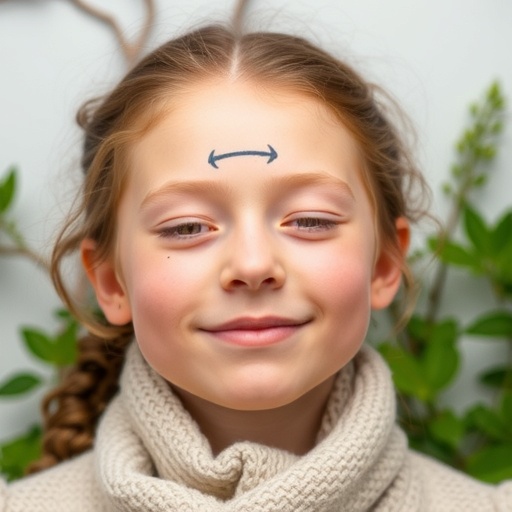Recent advancements in herbal medicine are paving the way for alternative therapeutic strategies, particularly in complex medical conditions such as facial palsy. This innovative research, spearheaded by a team of South Korean scientists led by Dr. Sang-Do Kim, delves into the effectiveness and potential application of herbal remedies for patients suffering from facial palsy. The study, titled “Herbal medicine evaluation for reimbursement-based facial palsy (HERB-FP),” harnesses data collected from Korean health insurance claims spanning from 2020 to 2024, highlighting both the prevalence and complexities of this often debilitating condition.
Facial palsy, characterized by temporary or permanent loss of muscle function in one side of the face, is a health issue that affects countless individuals worldwide. The causes can vary significantly, ranging from viral infections, such as the herpes simplex virus, to other underlying health conditions. Traditional treatments have primarily focused on corticosteroids and physical therapy, yet researchers are increasingly exploring how alternative medicines, such as herbal therapies, can contribute to recovery and rehabilitation. This research aims to investigate the role of herbal medicine in this regard and its implications for medical reimbursement within the Korean healthcare system.
At its core, the HERB-FP study offers a comprehensive retrospective analysis of health insurance claims to identify patterns in how herbal medicine is currently utilized for managing facial palsy. By examining the outcomes from those who sought these alternative treatments, the study provides a unique perspective on their efficacy in a real-world setting. This approach not only adds depth to the understanding of herbal remedies for treating facial palsy but also raises intriguing questions regarding their integration into conventional healthcare systems.
The efficacy of herbal medicine can often be difficult to quantify, and this study harnesses large-scale data to draw meaningful conclusions. Preliminary findings indicate that patients utilizing herbal treatments reported varying degrees of improvement in facial muscle functions. Such improvements have sparked a growing interest in the potential for herbal medicines to supplement traditional treatment modalities, particularly in cases where patients experience insufficient benefits from standard care.
Moreover, the research sheds light on the economic aspect of healthcare, particularly in the context of insurance reimbursement policies. Understanding how herbal treatments could be integrated into existing reimbursement frameworks presents an opportunity for reform in the Korean healthcare system. This could not only benefit patients financially but also promote a more holistic approach to healthcare that values diverse treatment modalities.
As the narrative surrounding herbal medicine continues to evolve, it is vital to acknowledge the historical context from which these practices emerge. Herbal treatments have been utilized for centuries in traditional medicine systems across Asia, and integrating these ancient practices with modern medical frameworks poses both challenges and opportunities. The HERB-FP study is a step towards reconciling these disparate worlds, emphasizing the need for collaborative research that bridges traditional knowledge with scientific inquiry.
Throughout the study, researchers implement rigorous methodologies to ensure the reliability of their findings. By analyzing health insurance claims, the investigation captures a broad demographic, thus ensuring that the data reflects a variety of experiences from diverse populations. This extensive dataset is crucial in drawing reliable conclusions, as it allows for a thorough assessment of treatment efficacy across a representative sample of individuals with facial palsy.
In articulating the outcomes of this research, the authors also emphasize the importance of safety and potential side effects associated with herbal medications. Transparency in reporting any adverse effects associated with these treatments remains paramount, especially as healthcare providers and patients seek alternatives that may carry fewer risks than conventional pharmaceuticals. Herbal medications, while often regarded as benign, can have complex effects, particularly when combined with other treatments, underscoring the need for continual dialogue around safety.
Notably, the findings also contribute to a broader discourse on patient autonomy and choice in healthcare. Many individuals are drawn to herbal treatments due to personal beliefs or cultural practices, and understanding these motivations is crucial for healthcare providers. The HERB-FP research not only illuminates the outcomes associated with herbal medicine but also addresses the underlying preferences of patients who opt for these therapies over traditional treatments.
In conclusion, the HERB-FP study stands as a pioneering effort to evaluate the role of herbal medicine in treating facial palsy. By integrating traditional knowledge with contemporary scientific research, the investigation paves the way for a more inclusive understanding of alternative therapies that may enhance patient outcomes. This work not only exemplifies the potential for herbal medicine to contribute to healthcare but also presents a compelling case for the reevaluation of insurance structures in light of emerging treatment modalities.
As the field continues to expand, future research must prioritize collaboration among multidisciplinary teams comprising herbalists, medical professionals, and health policy experts. Only through sustained efforts to understand herbal medicine can we better support patients suffering from conditions like facial palsy, offering them holistic, efficacious, and affordable options for care.
In summary, the HERB-FP research stands at the intersection of tradition and modernity, challenging pre-existing notions within medical paradigms and advocating for a future where patients have access to comprehensive treatment options bolstered by both scientific validation and cultural acceptance.
Subject of Research: Herbal medicine evaluation for facial palsy
Article Title: Herbal medicine evaluation for reimbursement-based facial palsy (HERB-FP): a retrospective analysis using Korean health insurance claim data 2020–2024.
Article References:
Kim, SD., Park, M.Y., Cho, E. et al. Herbal medicine evaluation for reimbursement-based facial palsy (HERB-FP): a retrospective analysis using Korean health insurance claim data 2020–2024.
BMC Complement Med Ther 25, 307 (2025). https://doi.org/10.1186/s12906-025-05048-w
Image Credits: AI Generated
DOI: 10.1186/s12906-025-05048-w
Keywords: herbal medicine, facial palsy, health insurance claims, alternative therapy, holistic approach.




